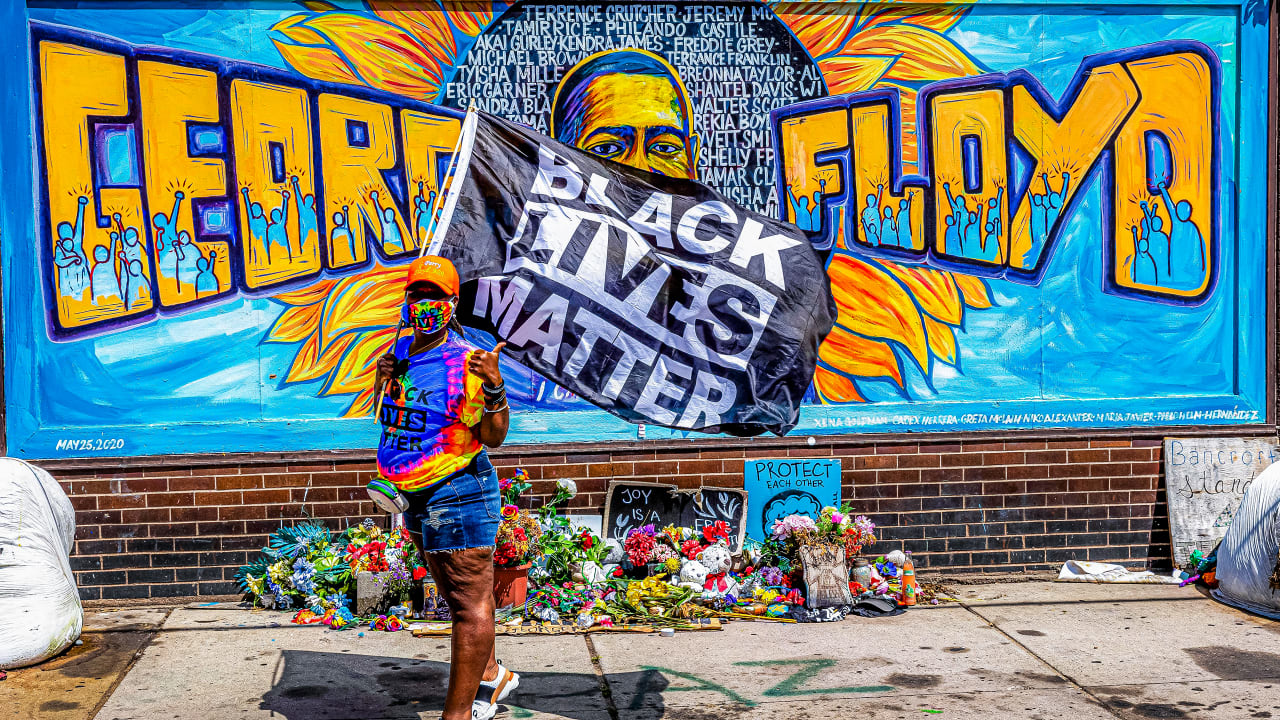DOJ abandons police reform lawsuits in cities at heart of BLM protests
The Justice Department announced plans Wednesday to abandon lawsuits against police departments in Minneapolis and Louisville, a reversal of Biden-era initiatives to reform policing in two cities that sparked a national reckoning around racial justice. “The Civil Rights Division will be taking all necessary steps to dismiss the Louisville and Minneapolis lawsuits with prejudice, to close the underlying investigations into the Louisville and Minneapolis police departments, and to retract the Biden administration’s findings of constitutional violations,” the Justice Department said in a press release. The decision to back away from police reform comes just days before the five-year anniversary of George Floyd’s death. Floyd was killed by Minneapolis police officer Derek Chauvin, who was found guilty of second-degree murder in 2021. The Justice Department also plans to throw out any findings of constitutional violations and close ongoing investigations into police departments in Phoenix, Trenton, Memphis, Oklahoma City and the state of Louisiana. Reversing Biden’s planned policing reforms Harmeet Dhillon, the assistant attorney general of the Justice Department’s civil rights division, characterized the Biden administration’s lawsuits as part of an “anti-police agenda.” “Today, we are ending the Biden Civil Rights Division’s failed experiment of handcuffing local leaders and police departments with factually unjustified consent decrees,” Dhillon said. The policy shift signals an aggressive return to the first Trump administration’s disinterest in police oversight and a likely roll-back of other federal reforms put in place over the last four years. In its waning days, the Biden administration rushed to finalize a Justice Department deal for police oversight in Minneapolis, securing unanimous approval from the Minneapolis City Council in early January. The agreement, known as a consent decree, was initiated in 2023 after a damning Justice Department report accused the Minneapolis Police Department of racial discrimination, First Amendment violations and the unlawful use of deadly force. In both Minneapolis and Louisville , consent decrees still await a federal judge’s approval. A powerful tool for police accountability Consent decrees are one of the federal government’s most powerful tools for holding police departments accountable for civil rights violations, dangerous policies and the wrongful use of deadly force. The Department of Justice regularly pursues these long-term roadmaps for reform with law enforcement agencies facing federal lawsuits, creating a framework for oversight that can endure until a judge decides that its requirements have been met. During the The Obama administration, 15 law enforcement agencies entered into consent decrees with the Justice Department to resolve lawsuits around policing – up from just three during the Bush era. During Trump’s first term, the Justice Department introduced only one new investigation of its own and even made efforts to stall out planned reforms in Baltimore, though it ultimately failed. Most notably, Trump’s then Attorney General Jeff Sessions narrowed the scope of consent decrees, introducing new requirements for sunset dates and limiting the reforms they could require. Under Biden, Attorney General Merrick Garland rescinded those sweeping Trump-era changes to consent reforms in 2021, clearing a path for the Justice Department to again leverage the powerful agreements when investigating law enforcement misdeeds and civil rights abuses. Trump’s early agenda makes it clear that he plans to leave police departments to their own devices in the coming years. That hands-off approach puts the fate of some cities’ planned police reforms up in the air or, like much of Trump’s agenda, up to the courts.

The Justice Department announced plans Wednesday to abandon lawsuits against police departments in Minneapolis and Louisville, a reversal of Biden-era initiatives to reform policing in two cities that sparked a national reckoning around racial justice.
“The Civil Rights Division will be taking all necessary steps to dismiss the Louisville and Minneapolis lawsuits with prejudice, to close the underlying investigations into the Louisville and Minneapolis police departments, and to retract the Biden administration’s findings of constitutional violations,” the Justice Department said in a press release.
The decision to back away from police reform comes just days before the five-year anniversary of George Floyd’s death. Floyd was killed by Minneapolis police officer Derek Chauvin, who was found guilty of second-degree murder in 2021.
The Justice Department also plans to throw out any findings of constitutional violations and close ongoing investigations into police departments in Phoenix, Trenton, Memphis, Oklahoma City and the state of Louisiana.
Reversing Biden’s planned policing reforms
Harmeet Dhillon, the assistant attorney general of the Justice Department’s civil rights division, characterized the Biden administration’s lawsuits as part of an “anti-police agenda.”
“Today, we are ending the Biden Civil Rights Division’s failed experiment of handcuffing local leaders and police departments with factually unjustified consent decrees,” Dhillon said.
The policy shift signals an aggressive return to the first Trump administration’s disinterest in police oversight and a likely roll-back of other federal reforms put in place over the last four years.
In its waning days, the Biden administration rushed to finalize a Justice Department deal for police oversight in Minneapolis, securing unanimous approval from the Minneapolis City Council in early January.
The agreement, known as a consent decree, was initiated in 2023 after a damning Justice Department report accused the Minneapolis Police Department of racial discrimination, First Amendment violations and the unlawful use of deadly force. In both Minneapolis and Louisville , consent decrees still await a federal judge’s approval.
A powerful tool for police accountability
Consent decrees are one of the federal government’s most powerful tools for holding police departments accountable for civil rights violations, dangerous policies and the wrongful use of deadly force. The Department of Justice regularly pursues these long-term roadmaps for reform with law enforcement agencies facing federal lawsuits, creating a framework for oversight that can endure until a judge decides that its requirements have been met.
During the The Obama administration, 15 law enforcement agencies entered into consent decrees with the Justice Department to resolve lawsuits around policing – up from just three during the Bush era. During Trump’s first term, the Justice Department introduced only one new investigation of its own and even made efforts to stall out planned reforms in Baltimore, though it ultimately failed.
Most notably, Trump’s then Attorney General Jeff Sessions narrowed the scope of consent decrees, introducing new requirements for sunset dates and limiting the reforms they could require. Under Biden, Attorney General Merrick Garland rescinded those sweeping Trump-era changes to consent reforms in 2021, clearing a path for the Justice Department to again leverage the powerful agreements when investigating law enforcement misdeeds and civil rights abuses.
Trump’s early agenda makes it clear that he plans to leave police departments to their own devices in the coming years. That hands-off approach puts the fate of some cities’ planned police reforms up in the air or, like much of Trump’s agenda, up to the courts.









































































































![Building A Digital PR Strategy: 10 Essential Steps for Beginners [With Examples]](https://buzzsumo.com/wp-content/uploads/2023/09/Building-A-Digital-PR-Strategy-10-Essential-Steps-for-Beginners-With-Examples-bblog-masthead.jpg)




















































